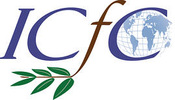The ICFC is an international 501(c)(3) nonprofit organization based in Boston, Massachusetts. Our mission is to strengthen individual dignity and interpersonal cooperation in conflict ridden communities through reconciliation and skills training. We work together with community leaders and organizations in North America, North Africa, Western Europe, the Middle East, South, South-East, and East Asia. We help embattled groups whose conflicts draw venom from old resentments.
By our methods and through our training, members of these embattled groups are able to explore their history, collective memories and other influences on the formation of their identities. People who are stuck in the past are provided with realizable choices for shared futures that can become cooperative, productive and prosperous.The ICFC believes that in a world where groups have the opportunity to redefine relations on the basis of empathy, communities have a better chance to survive and thrive, creating a culture of cooperation from the bottom up.
The ICFC was founded upon the belief that acknowledging historical injustices and grievances and learning empathy can allow former enemies to build foundations for shared action, feel that their identity is validated, and create a new sense of community. We believe historical grievances threaten to stir up conflict, even where economic and political interests in cooperation are strong. Inter-group relations might improve by rendering bygones. These often prove to be brittle and ephemeral when subjected to changing conditions. Peace-building at a state level, when nurtured at its grassroots by Historical Conciliation, proves to be more resilient and enduring.
In recent years, the ICFC is shifting its emphasis from sentiments of peace to expressions of cooperation and interdependency that transcend cultural, political, and religious borders. We train people to prepare themselves for uncertain futures. Creating a framework for community preparedness will have a positive impact on regions historically steeped in conflict but also subject to natural hazards. The scars of memory and the stress of anticipating the helplessness of natural disasters contribute to feelings of security and trust. The supportiveness of the community for the insider and the openness and generosity to the outsider come into balance.
By our methods and through our training, members of these embattled groups are able to explore their history, collective memories and other influences on the formation of their identities. People who are stuck in the past are provided with realizable choices for shared futures that can become cooperative, productive and prosperous.The ICFC believes that in a world where groups have the opportunity to redefine relations on the basis of empathy, communities have a better chance to survive and thrive, creating a culture of cooperation from the bottom up.
The ICFC was founded upon the belief that acknowledging historical injustices and grievances and learning empathy can allow former enemies to build foundations for shared action, feel that their identity is validated, and create a new sense of community. We believe historical grievances threaten to stir up conflict, even where economic and political interests in cooperation are strong. Inter-group relations might improve by rendering bygones. These often prove to be brittle and ephemeral when subjected to changing conditions. Peace-building at a state level, when nurtured at its grassroots by Historical Conciliation, proves to be more resilient and enduring.
In recent years, the ICFC is shifting its emphasis from sentiments of peace to expressions of cooperation and interdependency that transcend cultural, political, and religious borders. We train people to prepare themselves for uncertain futures. Creating a framework for community preparedness will have a positive impact on regions historically steeped in conflict but also subject to natural hazards. The scars of memory and the stress of anticipating the helplessness of natural disasters contribute to feelings of security and trust. The supportiveness of the community for the insider and the openness and generosity to the outsider come into balance.

